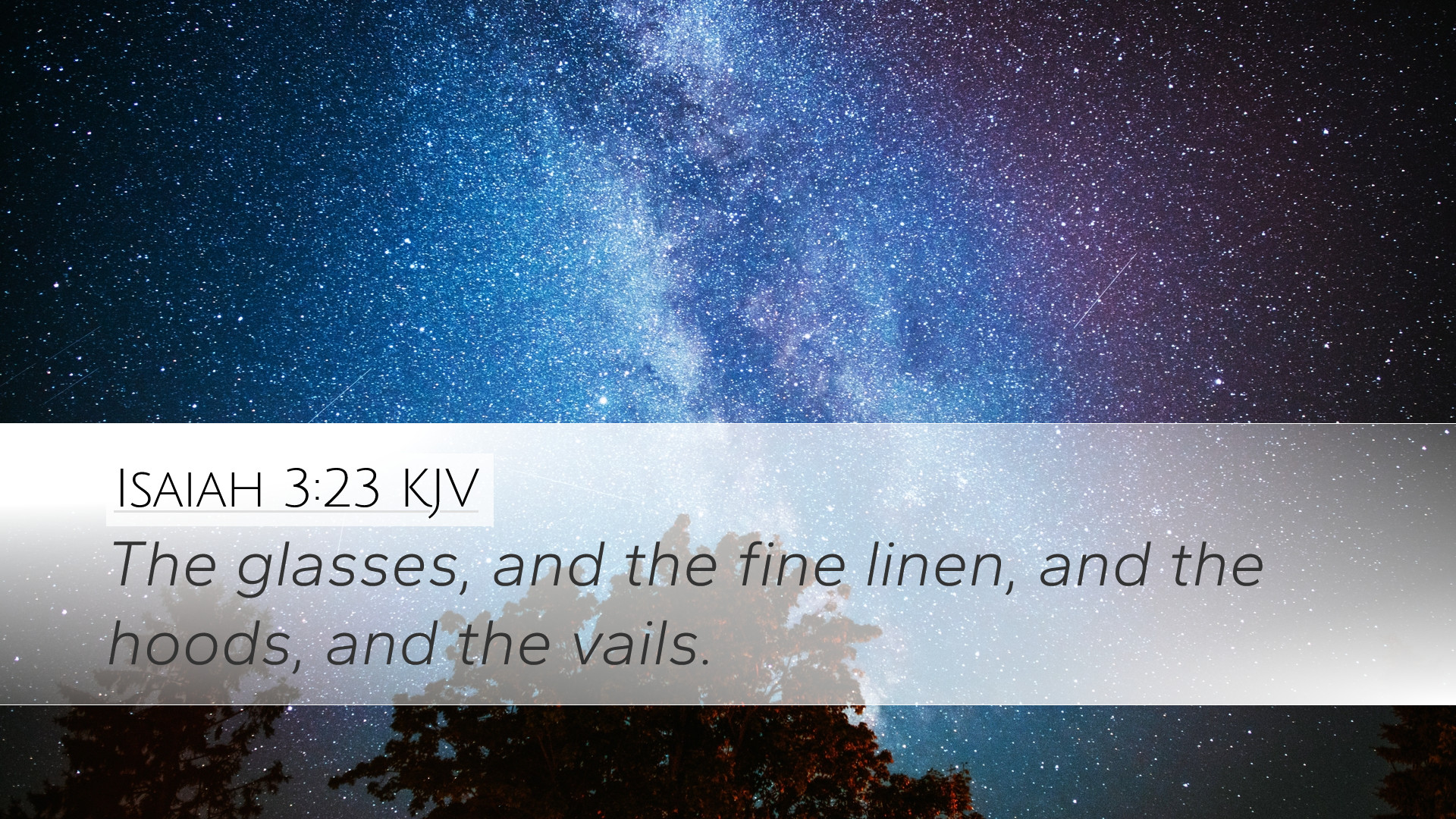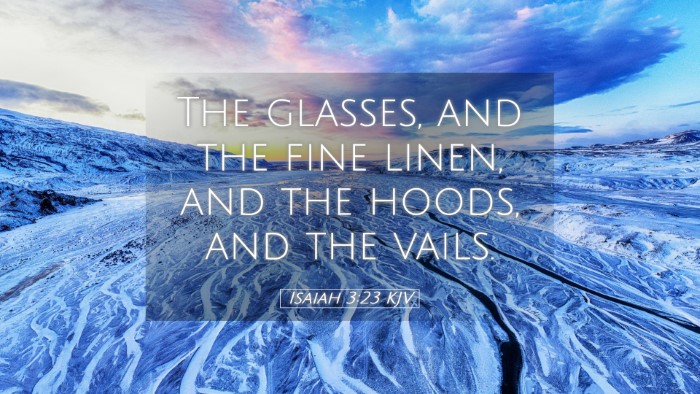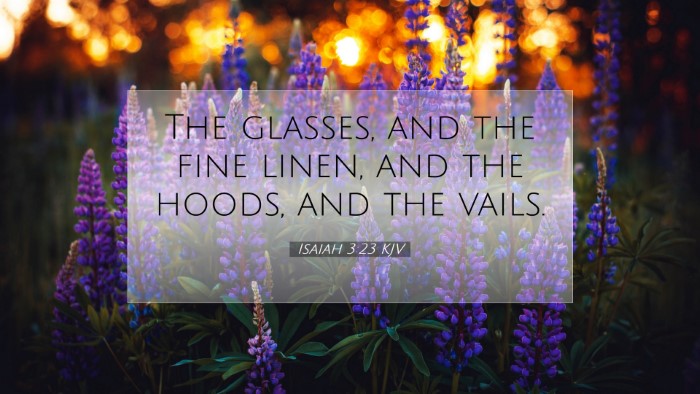Bible Commentary on Isaiah 3:23
Isaiah 3:23 states: "And the glasses, and the fine linen, and the hoods, and the vails." This verse is part of a larger passage where the prophet Isaiah critiques the social and spiritual decadence of Jerusalem and Judah, particularly highlighting the vanity and pride of the women in Zion. This commentary will delve into the meanings and implications of this verse, drawing insights from various public domain commentaries.
Contextual Overview
The Book of Isaiah is a prophetic work rich with themes of judgment, redemption, and divine sovereignty. In the chapters leading to Isaiah 3, the prophet outlines the consequences of social injustices and moral failures in Israel. The mention of luxuries like glasses, fine linen, hoods, and vails exemplifies the excess and superficiality of the people.
Insights from Commentators
Matthew Henry's Commentary
Matthew Henry emphasizes that this passage reflects the fate of the luxurious and proud, particularly the women of Jerusalem. He notes that these items symbolize not only vanity but also a disregard for the covenant relationship with God. The fine linen and intricate veils are representative of how the women adorned themselves while neglecting the moral decay surrounding them. Henry associates their adornment with impending judgment, suggesting that such vanity is temporally pleasing but spiritually detrimental.
Albert Barnes' Notes
Albert Barnes delves into the significance of the listed items, suggesting that they are representations of outward beauty that mask inner corruption. He explains that the "glasses" refer to mirrors, which were of high value in ancient times, and symbolize self-love and preoccupation with appearance. Barnes remarks that this obsession with outward adornment indicates a deeper spiritual neglect, as the women are distracted from their spiritual duties. He sees this as indicative of a broader societal issue where external and material pursuits eclipse true righteousness.
Adam Clarke's Commentary
Adam Clarke offers a detailed analysis of the cultural implications of these adornments. He mentions that the term "fine linen" refers to luxurious fabrics, aligning it with pride and haughtiness. Clarke notes that the hoods and veils mentioned were part of the traditional attire, but in this context, they have become items of ostentation rather than modesty. He argues that such extravagance is a direct affront to the humility that God requires of His people. Clarke also links this desire for luxury to the ultimate downfall of the society, highlighting God's call for repentance and humility.
Thematic Reflections
This verse and its surrounding context reflect several key themes:
- Judgment and Vanity: Isaiah's prophecy serves as a warning against the idols of vanity, particularly in the form of wealth and beauty. The Israelites are reminded that these external markers are fleeting and can lead to divine judgment.
- Spiritual Blindness: The passage illustrates the concept of spiritual blindness, where individuals become so engrossed in outward appearances that they neglect their spiritual responsibilities. This is a warning that resonates with both ancient and contemporary audiences.
- The Call to Humility: Amidst the luxury and pride, God calls His people to return to a state of humility and true worship. This is a central theme throughout the prophetic literature, emphasizing God’s desire for an authentic relationship grounded in repentance and faith.
Application for Today
This verse has profound implications for modern believers, clergy, and theologians. It invites reflection on the following:
- Assessment of Priorities: Like the women of Zion, individuals today must assess their priorities and the extent to which they may seek validation through material possessions or external appearance.
- Cultivating Inner Beauty: The call to cultivate inner beauty and spiritual depth is crucial. Pastors and leaders should encourage congregants to seek a deeper relationship with God rather than relying on superficial markers of faith.
- Social Responsibility: Given the societal context of Isaiah’s message, there is a challenge for contemporary Christians to remain socially aware and responsive to injustices, aligning their actions with God’s call for righteousness.
Conclusion
Isaiah 3:23 serves as a powerful reminder of the dangers of pride, luxury, and spiritual neglect. By examining the insights of influential commentators such as Matthew Henry, Albert Barnes, and Adam Clarke, we gain a richer understanding of the text and its implications for our lives today. The call to humility and repentance echoes throughout the ages, challenging believers to seek genuine faith that transcends mere appearances.


